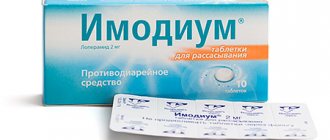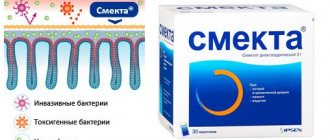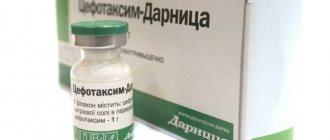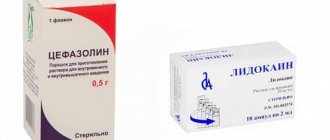In this medical article you can familiarize yourself with the drug Imodium. The instructions for use will explain in what cases the tablets can be taken, what the medicine helps with, what are the indications for use, contraindications and side effects. The annotation presents the forms of release of the drug and its composition.
In the article, doctors and consumers can only leave real reviews about Imodium, from which you can find out whether the medicine helped in the treatment of diarrhea in adults and children, for which it is also prescribed. The instructions list analogues of Imodium, prices of the drug in pharmacies, as well as its use during pregnancy.
A medicine to combat the symptoms of diarrhea is Imodium. Instructions for use indicate that capsules and lozenges 2 mg, chewable Plus soothe the digestive system and restore bowel function, reduce fluid loss and restore normal stool consistency.
Release form and composition
Imodium is available in the form of tablets and capsules for oral use. Tablets are sold in blisters of 10 pieces, 1-2 in a cardboard box, capsules in blisters of 6 pieces in a cardboard box with a detailed description attached.
The main active ingredient of the drug is loperamide hydrochloride - 2 mg in 1 tablet or capsule. The auxiliary components are: mannitol, gelatin, flavoring, sodium bicarbonate.
They also produce chewable tablets (Imodium plus).
https://youtu.be/26jLwXAD4p8
pharmachologic effect
Loperamide hydrochloride blocks opiate receptors in the intestinal wall, as a result of which the release of prostaglandin and acetylcholine is suppressed, which leads to a decrease in propulsive peristalsis. The transit time of intestinal contents increases, and the ability of the intestinal walls to absorb fluid increases.
The use of Imodium increases the tone of the rectum and anal sphincter, which allows better retention of feces and significantly reduces the frequency of the urge to defecate. Loperamide normalizes excess mucus in the intestines by reducing its secretion and helps reduce pain caused by spasms of intestinal smooth muscles.
The active substance is easily adsorbed in the intestines and is almost completely metabolized in the liver. Has a rapid therapeutic effect. Excreted with bile and feces. The half-life of the drug is 10-11 hours.
Instructions for use
Imodium is prescribed orally.
For acute diarrhea, adults and elderly patients are prescribed an initial dose of 4 mg, subsequently 2 mg after each act of defecation in case of loose stools. Children over 6 years of age are prescribed an initial dose of 2 mg, then 2 mg after each bowel movement in case of loose stools.
For chronic diarrhea, adults and elderly patients are prescribed an initial dose of 4 mg per day. Next, the dose is adjusted so that the stool frequency is 1-2 times a day, which is usually achieved with a maintenance dose of 2-12 mg per day. Children over 6 years of age are prescribed an initial dose of 2 mg per day.
Next, the dose is adjusted so that the stool frequency is 1-2 times a day, which is usually achieved with a maintenance dose of 2-12 mg per day. The maximum daily dose for acute and chronic diarrhea in adults is 16 mg; in children - 6 mg per 20 kg of body weight - up to 16 mg. If normal stool appears or if there is no stool for more than 12 hours, the drug is discontinued.
The lozenge should be placed on the tongue. Within a few seconds it will dissolve on the surface of the tongue and can be swallowed with saliva, without washing it down with water.
Treatment of enterovirus infection1
Very often, when infected, a person’s condition does not change and the disease is asymptomatic.
In some cases, the general condition only worsens, which indicates intoxication of the body. Associated symptoms include high fever, lethargy, weakness, headache and muscle pain, etc. Enteroviral fever. A very common disease. It is characterized by an abrupt onset, when body temperature rises to 38.5–40 °C and symptoms of general intoxication appear: weakness, headache and muscle pain and loss of appetite. This form is characterized by two types of syndromes: influenza-like and intestinal.
Herpetic sore throat. The main symptom is the appearance on the tonsils and mucous membrane of the back of the throat of small painful blisters surrounded by a red border. They are filled with clear liquid. The rash is accompanied by high fever and sore throat. The causative agent of this form of enterovirus infection is most often Coxsackievirus type A, less often type B.
Viral pemphigus. The disease is characterized by the appearance of a vesicular rash with a predominant localization in the oral cavity, on the palms, soles and between the fingers. They are painless. The rash may be accompanied by viral exanthema (red spots) that appears on the arms and legs. The causative agent of the disease is Coxsackievirus type A. Toddlers and preschool children are most often exposed to infection.
Viral exanthema. It is characterized by the appearance of a rash that is similar to rubella or roseola infantum. The causative agents are echoviruses. Pathology most often occurs in summer. Children under 5 years of age are most susceptible to it. The prognosis is favorable. All symptoms usually resolve within 3–5 days.
Pleurodynia. The disease is characterized by periodically occurring sharp convulsive pain in the muscles of the chest and abdomen, which intensifies when coughing or breathing. In some cases, such pain can cause shortness of breath. The duration of attacks is about 15–30 minutes. In parallel with this, the general condition of a person worsens.
Myocarditis, pericarditis. Inflammation of the heart muscle and pericardial sac. Young children are most susceptible to this form of infection. The onset of the pathology is similar to a common cold, accompanied by cough, shortness of breath and fever. Later, chest pain occurs, disturbances in the heart rhythm appear, and shortness of breath increases. As the disease progresses, heart failure develops.
Acute hemorrhagic conjunctivitis. This is an infection with a conjunctival virus. The main symptoms of the pathology are pain in the eyes, blurred vision, photophobia, conjunctival hyperemia and purulent discharge from the eyes. The phenomena of general intoxication: headache and fever - do not always occur.
Aseptic meningoencephalitis. Unfortunately, this pathology occurs quite often. It is 90% of all cases of aseptic meningitis that are caused by enteroviruses. And most often it affects children; it is much less common in adults. The main symptoms of the disease are rash, drowsiness, severe headache, photophobia, pain in the eyes and muscles.
The doctor can make a preliminary diagnosis based on the history and initial examination. It can be clarified using specific laboratory and instrumental studies that will determine the type of pathogen. This will significantly affect the treatment regimen, making it more effective.
Laboratory diagnostic methods include:
- serological blood tests;
- PCR (polymerase chain reaction);
- blood test for cardiac enzymes and troponin I;
- cerebrospinal fluid analysis;
- RT-PCR test (reverse transcriptase polymerase chain reaction).
In some cases, the doctor may prescribe additional instrumental examinations:
- chest x-ray,
- electroencephalography,
- echocardiography,
- electrocardiography.
For patients suffering from acute hemorrhagic conjunctivitis, the doctor necessarily recommends an examination by an ophthalmologist, as well as taking smears from the conjunctiva in the first 3 days of the disease.
Treatment of enteroviral pathology does not require antibiotic therapy, provided that there is no secondary bacterial infection. It is exclusively symptomatic and may include certain groups of medications.
- Antipyretics (non-steroidal anti-inflammatory drugs). Necessary in case of a strong increase in temperature in adults (above 38.5 °C) and in children (above 37.5 °C).
- Vitamins. They have a general strengthening effect. They are an important part of maintenance therapy. It is recommended to take vitamin-mineral complexes, which also include micro- and macroelements that improve the absorption of vitamins and have a positive effect on the body as a whole.
- Immunoglobulins. Activate the immune system and help cope with the disease faster.
- Antidiarrheal drugs. They help cope with such an unpleasant symptom as diarrhea (for example, IMODIUM® Express).
Antibiotics. Unless there is a bacterial infection that can only occur as a complication, these drugs are completely ineffective in fighting viruses. They can be prescribed only when there is no data on the pathogen, that is, in the first few days of the disease.
Corticosteroids. Hormonal treatments have always been a last resort because they can suppress the body's immune response, allowing viruses to survive. Prescription of drugs in this group is carried out in very severe cases and only after the patient’s body has produced a sufficient amount of antibodies to fight the infection.
There is no specific prevention against enteroviruses in the form of vaccination, except for poliovirus. To avoid infection, you just need to follow the rules of personal hygiene and, above all, wash your hands more often. If water and soap are unavailable for some reason, it is recommended to always have a special antiseptic gel with you. It is especially necessary for those who travel a lot.
Contraindications
- Diverticulosis.
- Intestinal obstruction (including in cases where suppression of peristalsis is not recommended).
- The first trimester of pregnancy and the period of breastfeeding (lactation).
- Acute dysentery and other gastrointestinal tract infections (caused, including Shigella spp., Salmonella spp., Campylobacter spp.).
- Pseudomembranous enterocolitis (antibiotic-associated diarrhea).
- Hypersensitivity to the components of the drug.
- Acute ulcerative colitis.
- Age up to 6 years.
Should be used with caution in patients with liver failure. In the II-III trimesters of pregnancy, Imodium can be taken only in cases where the expected benefit to the health of the mother is higher than the potential risk to the fetus.
Side effects
The drug is generally well tolerated by patients, but in some cases the following side effects may develop:
- From the central nervous system - fatigue, weakness, apathy, drowsiness, dizziness.
- From the digestive canal - constipation, increased gas formation, abdominal pain, intestinal spasms, nausea, vomiting, excessive dry mouth, in rare cases, intestinal obstruction may develop.
- In some cases, patients may develop tongue tingling and urinary retention.
- Allergic reactions - rash, itching of the skin, hyperemia, swelling of the mucous membranes.
Children, pregnancy and breastfeeding
Imodium is contraindicated in the 1st trimester of pregnancy. Despite the absence of indications of teratogenic or embryotoxic effects, Imodium can be prescribed in the 2nd and 3rd trimesters of pregnancy only in cases where the expected benefit of therapy for the mother outweighs the potential risk to the fetus.
Loperamide is excreted in small quantities into breast milk, so if it is necessary to use the drug during lactation, breastfeeding should be discontinued.
Imodium capsules are contraindicated for children under 6 years of age. Children under 5 years of age are prescribed tablets only under strict medical supervision. Imodium should not be used for children simultaneously with drugs that have a depressant effect on the central nervous system.
Consequences of diarrhea
Prolonged diarrhea can lead to dehydration, a condition that is dangerous for both the expectant mother and the fetus. It is manifested by severe weakness, dry mucous membranes, and thirst. Severe dehydration may affect cardiac and respiratory function. Diarrhea can also, in some cases, increase the risk of miscarriage due to increased contractile activity of the uterus and can lead to disruption of uteroplacental blood flow.
Release form and composition of Imodium
Imodium is available in the form of lozenges, gelatin capsules, drops and syrup. The last two forms are intended exclusively for children. The drug is not produced in the form of a suspension.
The active ingredient, loperamide hydrochloride, has a pronounced antidiarrheal effect. This substance belongs to the opioid group, that is, it is an antagonist of the body’s opioid receptors, which are located in the gastrointestinal tract and in the central nervous system.
Auxiliary components - gelatin, titanium dioxide, iron oxide, erythrosine, indigo carmine, sucrose and menthol (give the medicine a pleasant sweetish taste and minty freshness), corn starch (serves as a filler).
Capsules are manufactured in such a way that dissolution and absorption occur in the large and small intestines. A new product - Imodium Plus chewable tablets additionally contain simethicone, which stops the formation of gases.
Drug analogues
Analogues of Imodium, containing the same active ingredient - loperamide, are the following drugs:
- Lopedium;
- Diarol;
- Enterobene;
- Loperacap;
- Diara;
- Superilop;
- Neo-enteroseptol.
Analogues of Imodium, list of drugs
- Vero Loperamide;
- Diara;
- Diarol;
- Laremid;
- Lopedium;
- Loperacap;
- Loperamide;
- Superilop;
- Enterobene;
- Imodium Lingual;
- Loperamide Hydrochloride;
- Loperamide Health;
- Stoperan.
Before using analogues, consult your doctor.
Analogues of Imodium are determined by their structure:
- Loperamide.
- Superilop.
- Diarol.
- Enterobene.
- Lopedium.
- Diara.
- Laremid.
- Vero Loperamide.
- Loperacap.
Analogs of Imodium are: Imodium Lingual, Vero-Loperamide, Diara, Loperamide, Loperamide-Akrikhin, Loperamide Grindeks, Loperamide Hydrochloride, Loperamide Health, Lopedium, Stoperan.
Pharmacological action of the drug
The drug is effective against diarrhea, its effect lasts 4 – 6 hours. The effect is due to a decrease in intestinal motility and an increase in the tone of the anal sphincter.
By slowing down the passage of feces through the intestines, a significant amount of moisture is extracted from them. Approximately 40% of loperamide is absorbed in the intestine. Metabolism of the substance occurs in the liver.
The pharmacological action of Imodium is primarily aimed at:
- reduction of pain;
- restoration of water and electrolyte balance;
- decreased stool frequency.
The main danger with diarrhea is dehydration. This is what Imodium primarily fights.
Instructions for use
From what age is it legal to give the medicine? Despite its effectiveness, treatment with Imodium is far from safe. In many countries around the world, the use of the drug, regardless of the form of release, is permitted no earlier than 12 years. For a long time, only prescription use of the drug was allowed. Now the product is used more widely, a significant number of analogues containing the same active substance have appeared. However, this did not affect the mechanism of action or unwanted side effects.
Purpose of Imodium
Imodium for children is a strong and dangerous drug. Self-use can lead to negative consequences. Regardless of their mechanism of action, antidiarrheal drugs can be used with certain restrictions. Medicines prevent dehydration, but diarrhea is the body's defense response to poisoning. If diarrhea occurs due to the consumption of low-quality products or the entry of a pathogenic infection into the body, the use of Imodium can lead to additional complications, creating a favorable environment for the proliferation of pathogens of the primary disease.
Imodium is prescribed in the following cases:
- diarrhea, which is caused by a change in diet or change of water;
- diarrhea of allergic nature;
- intestinal disorders caused by emotional reasons (severe stress, increased nervous excitability);
- diarrhea after radiation therapy or surgery.
What are the contraindications?
Imodium should not be prescribed to a child with the following diseases:
- intestinal obstruction of any degree and etiology;
- constipation;
- flatulence, bloating;
- dysentery, salmonellosis;
- colitis (ulcerative, pseudomembranous);
- lactase deficiency;
- protrusion of the intestinal walls;
- intestinal conditions in which a decrease in smooth muscle tone should not be allowed;
- hypersensitivity to loperamide or excipients.
Also, the drug is not prescribed for liver diseases. The absence of a positive effect during the use of Imodium for 2 days indicates the need for immediate discontinuation of the drug.
Treatment regimen and dosage
At what age can the drug be used?
Imodium is not prescribed for children under 2 years of age. Exceptions are possible only at the discretion of the doctor, but the appointment is carried out under strict medical supervision. The instructions suggest starting to take the medication from 6 years of age. For children 6 - 8 years old, Imodium is prescribed 1 mg 3 - 4 times a day. The maximum duration of treatment is 3 days. From 9 to 12 years, the maximum dose is 2 mg, given 4 times a day. The course of treatment cannot last more than 5 days. Usually, the drug is stopped after the frequency of stools becomes 1 - 2 times a day. For chronic diarrhea, the primary dose is calculated depending on age, 1 or 2 mg. Then the medicine is given in the same amount after each bowel movement, bringing the frequency of stool to 2 times a day.
What adverse reactions may occur in a child?
Despite possible exceptions, Imodium is not prescribed to children under 12 months of age. Children under 6 years of age may experience various life-threatening adverse reactions. In the youngest, cases of paralysis and intestinal edema have been reported, which have led to death. That is why this effective remedy is prohibited for children in many countries.
According to statistics, every 4th newborn died from the effects of the medicine. For children from one to 3 years of age, taking Imodium often threatens intestinal paralysis. This medicine should not be given to a child without a doctor's prescription, and should not exceed the recommended dosage.
Parents need to remember that Imodium does not treat intestinal disorders, but only stops diarrhea. Considering the danger of the drug for a child, it should be used only when absolutely necessary and as prescribed by the attending physician.
In addition to an allergic reaction, negative consequences of exposure to loperamide itself are also possible. They can occur both with an overdose and with individual intolerance to the drug.
Overdose symptoms
In case of individual intolerance and excess dosage, Imodium can cause:
- dizziness;
- problems with urination;
- indigestion;
- insomnia;
- apathy, lethargy, increased fatigue;
- colic in the intestines;
- dry mouth;
- disturbance of electrolyte metabolism.
Due to the fact that the active substance affects the central nervous system, after taking Imodium, disturbances in respiratory function, coordination of movements, and increased drowsiness are possible. Constriction of the pupils, increased muscle tone, and stupor may be observed. The effect on the central nervous system also explains the occurrence of intestinal obstruction. If after taking the medicine you experience bloating, nausea and vomiting, or pain, you should immediately stop using the medicine and seek medical help. The same should be done if constipation occurs.
How does it interact with other drugs?
The interaction of Imodium with other drugs has not been studied, so the manufacturer does not provide data on this.
However, it is obvious that taking other medications that contain loperamide together with Imodium leads to a noticeable excess of the dose of the active substance in the body. The results of an overdose will be similar to those of an overdose of Imodium. The consequence may be dangerous changes in the child’s body. In order to avoid this, Imodium should not be combined with other antidiarrheal drugs, especially those containing the same active ingredient.
Indications
Diarrhea in pregnant women can be caused by any of the following reasons: food allergies, emotional shock, metabolic disorders due to hormonal changes in the body. For any form of diarrhea, your doctor may prescribe Imodium. The most likely prescription for diagnosis:
- chronic or acute diarrhea;
- allergic diarrhea;
- disorders of the digestive system caused by depression or resulting from emotional shock;
- infectious diarrhea;
- metabolic disorders.
It should be noted that Imodium is a drug that does not treat the disease as such, but only eliminates the symptoms.
What can be replaced?
Another medicine can be used to treat diarrhea in children. Pharmacies offer a range of tablets that contain the same loperamide. Of course, these drugs pose the same danger to the child as Imodium. These include Loperamide, Vero-Loperamide, Diara, Stoperan and some others.
Medicines that do not contain loperamide can completely replace Imodium:
- Phthalazole belongs to the group of sulfonamides. For children, the drug is prescribed at the rate of 0.1 g per 1 kg of body weight (per day), the daily dose is divided into several doses.
- Stopdiar is an antibacterial drug that contains nifuroxazide (more details in the article: analogs of the drug Stopdiar for children). The medicine does not affect the intestinal microflora. Allowed for use from 7 years of age.
- Enterosgel is an intestinal adsorbent. Due to its detoxifying properties, the drug frees the intestines from toxic substances and bacteria. Suitable for use from infancy.
- Smecta – the active substance is dioctahedral smectite. It has an adsorbing effect, removes bacteria and viruses from the body. Can be used to treat children from birth.
In each case, the doctor selects the drug based on medical indications and the presence of contraindications in the child. Due to the fact that each medicine has a number of contraindications and possible complications, you should not prescribe treatment yourself. This especially applies to babies under one year old. Children's delicate intestines are still poorly adapted to protect themselves from infection, so it is worth entrusting the child's treatment to an experienced specialist.
www.deti34.ru
The principle of the effect of imodium
The main function of loperamide is to block certain receptors in the human body that are associated with digestion. Thanks to its effect, the motor work of the stomach decreases, as a result of which the tone of the sphincter of the anus and rectum increases. As a result of the use of this drug, all food eaten by a person is retained for a longer period in the intestines, and the urge to bowel movement is noticeably reduced. Processes occurring in the human body after taking the described medication:
- Reducing mucus secretion.
- A normal rhythm of intestinal muscle activity is established.
- The pain that occurs during intestinal spasms is reduced.
- Consuming salt and water achieves the desired balance.
After taking Imodium, you can notice improvements within 1 hour, and after 5-6 hours the maximum effect comes and recovery occurs.
What are the contraindications for Imodium?
The use of imodium is prohibited in the following cases:
- acute ulcerative colitis and other forms of colitis;
- any infectious lesions of the gastrointestinal tract, in particular acute dysentery, if this is accompanied by elevated body temperature and the presence of traces of blood during bowel movements;
- breast-feeding;
- pregnancy, especially in the first and last trimesters. At the end of pregnancy, the use of this drug is sometimes allowed, but within reasonable limits and with caution;
- in the presence of intestinal obstruction;
- if you have special sensitivity to the constituent components of this medicinal substance;
- small children under 12 years of age;
- liver problems.
As a rule, the instructions for the drug Imodium contain instructions for the age of children under 6 years old.
It is forbidden to give this medicine to a child under 1 year of age, as this can lead to death due to the fact that such an effect on the muscles of the children's intestines is very harmful.
All food eaten by the baby is retained in the intestines. As a result, paralysis of the intestinal muscles may occur. If this is a newborn baby or a child a couple of months old, then such children may still experience swelling of the abdominal cavity, which can also lead to death. To summarize the above, you should start taking Imodium in children no earlier than 12 years of age.
What special indications does Imodium have?
- If you notice that your bloating and constipation are increasing and getting worse, you should stop taking this medication immediately. Since Imodium is not taken regularly, but only on occasion, it is recommended to use any etiotropic drugs together with it.
- Since when taking Imodium, as a rule, the amount of salts in the body decreases and hypovolemia sometimes occurs, this is especially noticeable in young children, it is recommended in such situations to take replacement therapy to replenish the fluid balance in the body and increase the amount of electrolytes.
- If diarrhea is acute and lasts for more than 2 days, it is recommended to stop taking Imodium. It is imperative to exclude the infectious genesis of this disorder.
- The use of Imodium is prohibited if blood is found in the stool or if there is an elevated body temperature.
- If a person has AIDS, then at the slightest bloating, taking this drug should be stopped.
- If this is not done and the use of imodium is continued, then expansion of the colon may occur against the background of such toxicosis. This especially applies to those who suffer from viral and bacterial colitis.
- If a person has problems with the liver, then observation is mandatory in order to be able to identify signs of toxic damage to the central nervous system in time.
- When taking Imodium, it is recommended to follow a certain diet and drink plenty of water.
special instructions
If 48 hours after the use of loperamide there is no positive dynamics, it is necessary to clarify the diagnosis and exclude the infectious genesis of diarrhea.
If constipation or bloating occurs, Imodium should be stopped immediately.
With diarrhea, especially in children, hypovolemia and a decrease in electrolyte levels may develop. In these cases, it is important to carry out replacement therapy to replenish electrolytes and fluids.
Since treatment of diarrhea with Imodium is only symptomatic, etiotropic drugs should be used simultaneously with taking the drug, if possible.
In acute diarrhea, if clinical improvement is not observed within 48 hours, therapy should be stopped and the diagnosis clarified, excluding the infectious origin of diarrhea.
You should not take Imodium if you have diarrhea accompanied by blood in the stool and high fever.
In patients with AIDS, when the first signs of abdominal bloating appear, therapy should be stopped immediately. In some cases, in patients with AIDS with infectious colitis of a bacterial and viral nature, toxic dilatation of the colon may develop during therapy.
Patients with functional liver disorders need to be closely monitored for timely detection of symptoms of toxic damage.
During therapy, it is recommended to follow a diet and monitor timely fluid replenishment.
Please note that lozenges are quite fragile, so to avoid damage, they must be removed from the package with care.
While taking Imodium, it is recommended to refrain from driving vehicles and performing potentially dangerous types of work that require high concentration and speed of psychomotor reactions.
- If constipation or bloating occurs, Imodium should be stopped immediately.
- During therapy, it is recommended to follow a diet and monitor timely fluid replenishment.
- You should not take Imodium if you have diarrhea accompanied by blood in the stool and high fever.
- Since treatment of diarrhea with Imodium is only symptomatic, etiotropic drugs should be used simultaneously with taking the drug, if possible.
- With diarrhea, especially in children, hypovolemia and a decrease in electrolyte levels may develop. In these cases, it is important to carry out replacement therapy to replenish electrolytes and fluids.
- Patients with functional liver disorders need to be closely monitored for timely detection of symptoms of toxic damage.
- In acute diarrhea, if clinical improvement is not observed within 48 hours, therapy should be stopped and the diagnosis clarified, excluding the infectious origin of diarrhea.
- Please note that lozenges are quite fragile, so to avoid damage, they must be removed from the package with care.
- In patients with AIDS, when the first signs of abdominal bloating appear, therapy should be stopped immediately. In some cases, in patients with AIDS with infectious colitis of a bacterial and viral nature, toxic dilatation of the colon may develop during therapy.
When dosages are calculated correctly, the drug does not affect the nervous system and natural psychomotor reactions. Adverse symptoms are possible in case of overdose. If dizziness, drowsiness and other signs of a negative reaction of the body occur, you should refrain from driving vehicles and operating complex mechanisms.
Components from Imodium can have a negative impact on the process of fetal formation in the first trimester of pregnancy. At a later date, the medication can be prescribed only in emergency cases (the drug cannot be taken on its own). During breastfeeding, the use of Imodium should also be avoided.
Imodium can be taken by children from the age of six.
Serious kidney pathologies are grounds for additional consultation with a specialist.
It is necessary to adjust the course of therapy and monitor it from a specialist.
Is the use of imodium allowed for small children?
If the child is already 6 years old, then you can give him 2 mg of this medicine at once, and then the dose can be slightly increased and the same amount of the drug can be given after each bowel movement. At its core, Imodium is not a very suitable drug due to the presence of loperamide in its composition. Thanks to the latter, many toxins simply remain in the body, which can lead to deterioration, especially for children. For a child, it is recommended to use, for example, smecta or enterosgel. Also, the baby needs to be kept on a diet for some time. The diet should include chicken broth, rice porridge with water, jelly, crackers, various decoctions, juices, and fruits. It is always recommended to consult a doctor and not self-medicate!
Tell your friends! Share this article with your friends on your favorite social network using social buttons. Thank you!
pishhevarenie.com
This medicinal drug is by no means a simple and safe drug, especially for children. No one should be attracted to over-the-counter drugs; in many republics it is allowed for use from the age of 12, in our country from 6. All this is connected with the problems that the medication can cause when used.
Instructions for use
Diet
When treating diarrhea, it is very important to adjust your diet to reduce the load on the digestive tract and help the body cope with the problem faster. In case of intestinal dysfunction, accompanied by frequent bowel movements, spicy, sour, and fatty foods are excluded from the diet. If you have an intestinal disorder, you should not consume whole milk, fresh fruits and vegetables, legumes, sweets, spices, or smoked snacks. Liquid, semi-liquid, pureed and steamed foods are allowed. They should be served warm, but not hot or cold. In the first days of infectious diarrhea, experts may recommend following a fasting diet. Then rice water and liquid porridge made from oatmeal or buckwheat are introduced into the diet.
https://youtu.be/SB9BwzL9KgU











